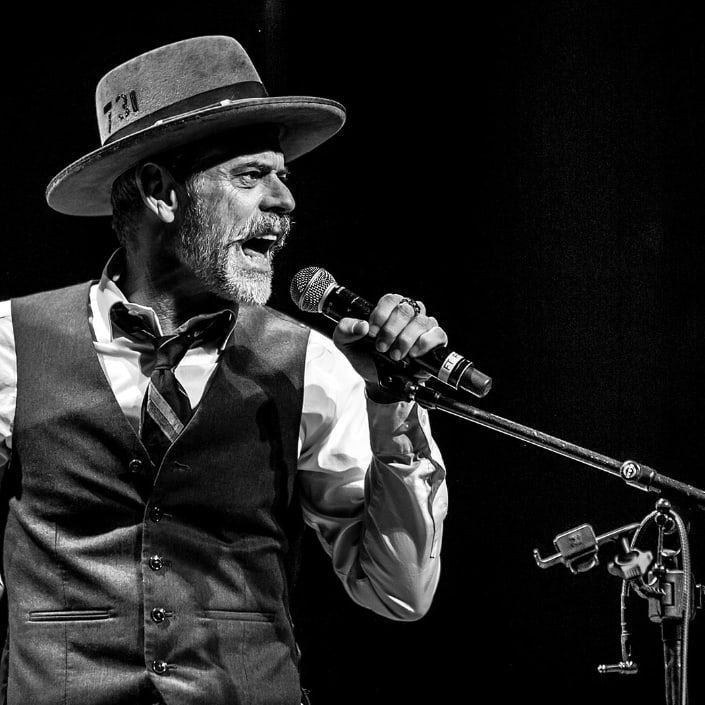Tommy Howell’s evolution is ongoing. The famed actor, renowned for his role in the youth classic The Outsiders, pursues more varied ends these days and one of those roads leads him to his debut album American Storyteller. It is no shock that Howell’s taken up the mantle of singer/songwriter outlaw country considering his personal past as a former rodeo star, and he wears it well.
URL: https://tommyhowellmusic.com/
He also escapes the “curse” of other actors who’ve turned to music. There’s no Bruce Willis performing as Bruno or other sundry attempts from prominent actors and actresses. Howell’s American Storyteller resonates with listeners thanks to its authenticity and his innate talent. The album’s eleven songs traverse familiar terrain in regards to subject matter, but Howell breaks from cliché with his obvious bluesy debts and compelling vocal presence.
The opener “Whiskey Demon” illustrates those points. It is an arch-traditional take on the classic blues or country “drinking song” in some ways. A deeper listen, however, reveals added layers. It’s a song that deals head on with alcohol’s perils and Howell’s vocals underline this aspect of the track. The musical arrangement and playing owes much more to blues/blues rock than country though there are a plethora of influences arising from the performance.
“Rose Hill” is a track emphasizing the album’s title. This slice of life, past recalled, number exhibits many of Howell’s strongest storytelling traits. It never slips into hackneyed cliché. There is a much more acoustic sound prevalent during this song than the opener and Howell’s reach for an Allman Brothers vibe is apparent. It isn’t imitation, however. The rambunctious blues shuffle powering “Miss Maybelle” is one of the album’s highlights. Howell further spikes the song’s punch with gritty harmonica and steeps the guitar work in a sound any devotee of the style will relish. It’s one of the album’s more playful moments.
Howell shifts into a more overt blues rock gear with “Raised By Wolves”/ This is a definite crowd pleaser for aficionados of the genre and relies on several turns of phrase listeners will readily identify. Harmonica returns in the late album track “’88”. The lyrics may strike some listeners as a bit odd with Howell looking back thirty-five years to the bygone era of Reagan/Bush era America as an idyllic time. It’s attuned, however, to Howell’s target audience without ever pandering.
“Hope I Ain’t Dead” is a great and individual love song and brimming with details any listener will relate to. Howell tempers the bluesy yowl prevalent in earlier tracks and delivers a soulful vocal. “Ponygirl”, the album’s finale, is an affectionate and melodic acoustic closer that shows his versatility. It’s the final bit of evidence for any doubters that Howell’s foray into the music world is far more than a gimmick – it’s an earnest and involving musical collection full of hard-bitten honesty. It opens a new chapter in Tommy Howell’s journey that is perhaps unexpected, but certain to pay dividends for years to come. Let’s follow him wherever it goes from here.
Jodi Marxbury
